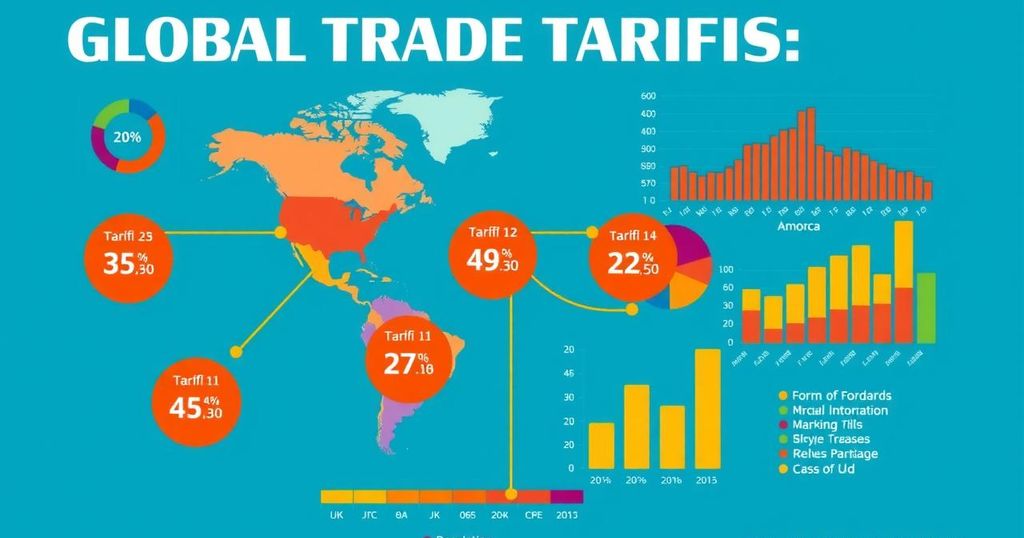Ecuador’s presidential election will proceed to a runoff in April 2024, where conservative incumbent Daniel Noboa will face leftist lawyer Luisa González. Both candidates focus heavily on addressing crime rates significantly affected by drug trafficking. The initial round of voting revealed a tight contest, with Noboa receiving 44.31% of the vote and González 43.83%.
Ecuador is poised for a presidential runoff election in April between the conservative incumbent Daniel Noboa and leftist lawyer Luisa González. Crime remains a central concern for voters, predominantly driven by cocaine trafficking from Colombia and Peru, which has led to increased rates of homicide, kidnapping, and extortion. The National Electoral Council reported that, with 92.1% of votes counted, Noboa secured 44.31% while González followed closely with 43.83%.
Neither candidate obtained an outright victory in the initial round of voting, held recently, but both significantly outperformed the remaining fourteen candidates. This upcoming runoff on April 13 will serve as a continuation of the October 2023 snap election, which granted Noboa a short tenure of 16 months.
Noboa and González are vying for a complete four-year term, with both promising to address the rampant criminal activity that has plagued Ecuador. The uptick in violence is attributable to cocaine trafficking, prompting many citizens to consider whether a new president can successfully steer the nation in a different direction or if Noboa should be allowed to continue.
Noboa, who comes from a wealthy background in the banana trade, and González, a protégé of Ecuador’s influential recent president, emerged as the clear frontrunners. Preliminary figures from the National Electoral Council indicate that Noboa received approximately 4.22 million votes while González garnered around 4.17 million votes, indicating a very tight race.
Ecuador mandates voting, contributing to high participation, with over 83% of eligible voters casting ballots. Under Noboa’s leadership, Ecuador’s homicide rate has decreased, yet it remains considerably elevated compared to previous years. Citizens have expressed fears regarding escalated kidnappings and extortion.
Some voters have expressed dissatisfaction with Noboa’s performance, with Marta Barres stating, “For me, this president is disastrous.” She believes González could better tackle crime and improve the economy. In the October runoff, Noboa defeated González following the previous president dissolving the National Assembly.
To win in the first round, a candidate must achieve at least 50% of the vote or 40% with a ten-point lead. Security measures were extensive during the election, featuring over 100,000 police officers and military personnel stationed throughout the country. President Noboa personally led a heavily escorted vote.
In his early political career, Noboa, aged 37, has experienced scrutiny for his tough law enforcement strategies aimed at curbing crime. His measures have included a state of internal armed conflict declaration permitting military deployment against organized crime. Despite questions surrounding legality, these actions have garnered public support.
González, aged 47, has held various governmental roles and was perceived as a lesser-known candidate until recently. She is associated with former President Rafael Correa, whose legacy includes both substantial social reforms and increasing authoritarianism towards the end of his term. Observers note that the election results may signify a resilience for Correa’s party.
Some experts indicate that Noboa must strategize further as he may have reached his full voter potential, largely attributable to issues faced during his presidency. Voter sentiments reflect a pervasive skepticism, with many believing entrenched corruption hinders any potential for significant criminal reform and societal change.
In summary, Ecuador’s runoff election in April for the presidency between Daniel Noboa and Luisa González highlights the nation’s urgent concerns with crime and governance. Both candidates have strong narratives related to crime reduction and addressing systemic issues. The extremely close vote underscores the division among voters regarding the future direction of Ecuador. Ultimately, significant political and social challenges remain as the country seeks effective leadership that can confront the pervasive issues impacting its citizens.
Original Source: www.foxnews.com




